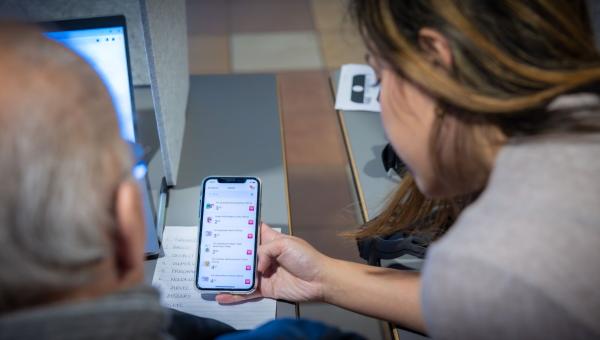DIGIQUITY4HEALTH: How digital choice environments affect equity and disparities in healthy consumption
How can we prevent digitalization from exacerbating existing health inequities and instead harness its potential to promote healthy lifestyles in an equitable manner?
The project in short:
The digital transformation of the food environment (e.g., supermarket websites and apps) presents both opportunities and threats regarding responsible consumption, particularly for promoting healthy food choices. In the past, digitalization has given rise to disparities resulting from a digital divide. Similarly, digital choice environments have shown potential for promoting healthy food choice, for example by personalised nudging, but predominantly benefitted individuals of higher socioeconomic position (SEP).
This project addresses a significant gap in scientific knowledge by investigating the impact of digital choice environments on healthy food choices and exploring how its unique features, e.g., personalization, can serve people with lower SEP in ethically justified ways. The ultimate objective is to prevent digitalisation from exacerbating existing health disparities and to instead leverage its potential to promote health equity.
-

Project objectives
The general objective of this project is to advance knowledge on how digital choice environments affect SEP-related disparities in healthy food choice.
More information -

Potential impact
Unhealthy eating is responsible for 8% of the burden of disease in the Netherlands, leads to 12.900 deaths per year and is associated with 6 billion euros in health care expenditure.
More information -

Multidisciplinary project consortium
It is important to combine forces in finding long-term solutions to enable people to lead a healthy life. The consortium therefore includes private parties Nakko and AiMark.
More information
Duration
The project will run from January 2024 – December 2027.
This project is funded by Tilburg University’s Digital Sciences for Society program:
Get ready for the digital future
The Digital Sciences for Society program invests in impactful research, education and collaboration aimed at seizing the opportunities and dealing with the challenges of digitalization for science and society.
